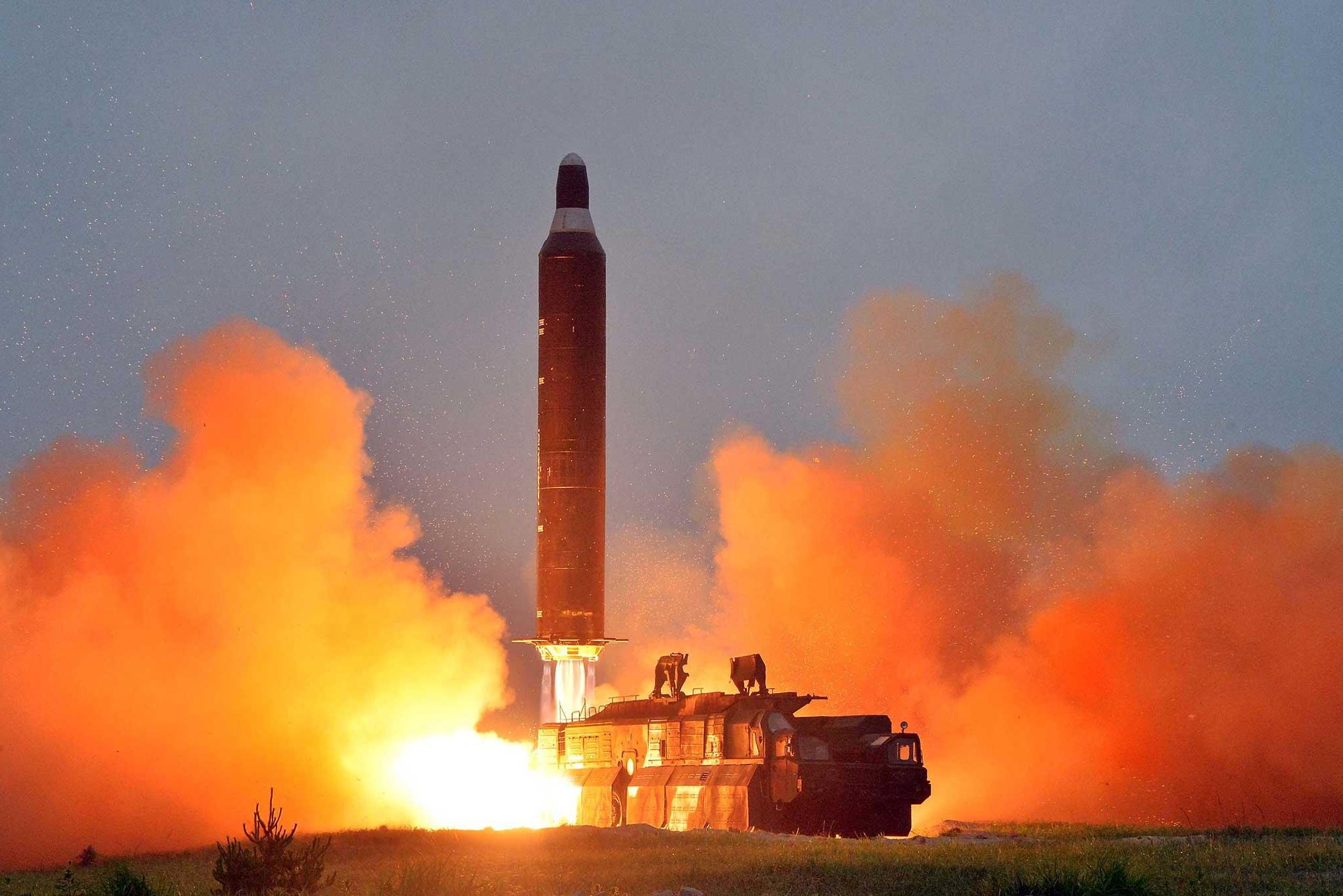The United States, Japan and 10 other countries have requested a UN investigation of North Korea’s ballistic missile tests in a move that could lead to targeted sanctions, according to a joint letter obtained by AFP on Wednesday.
Ten Security Council members along with Australia and South Korea asked the UN sanctions committee to “review carefully the known details” about the July 18 launch of three Scud ballistic missiles and a No Dong intermediate-range missile.
The investigation could identify individuals and companies involved in North Korea’s missile program who could face targeted sanctions including a global visa ban and assets freeze.
“As the DPRK proceeds to develop new and destabilizing weapon systems, the Security Council should be prepared to respond with further significant measures,” said the letter sent to the sanctions committee on July 28.
The sanctions committee is asked to “take appropriate action” in response to Pyongyang’s launch of the missiles which are in violation of Security Council resolutions.
Aside from the United States and Japan, the request was endorsed by council members Britain, France, Malaysia, New Zealand, Senegal, Spain, Ukraine and Uruguay.
China, North Korea’s sole ally, and Russia did not back the request.
“We will cooperate fully with the committee and its panel of experts in their investigation of these incidents,” said the letter.
North Korea has been hit by five sets of UN sanctions since it first tested an atomic device in 2006.
The council in March adopted its toughest sanctions resolution to date, banning exports of coal, iron and other minerals from North Korea and imposing other restrictions, in particular in the banking sector.
At the request of the United States and Japan, the council met Wednesday behind closed doors to discuss Pyongyang’s latest missile launch, which for the first time landed in Japanese-controlled waters.
North Korea fired two intermediate-range missiles simultaneously, but one appeared to explode on takeoff.
The second missile landed in the Sea of Japan (East Sea), some 155 miles (250 kilometers) off Japan’s northern coast and within its Exclusive Economic Zone (EEZ).
British Deputy Ambassador Peter Wilson said the council should consider further action if North Korea presses on with the provocative missile launches.
“I think we should be looking at every means to convince the North Koreans to come into the fold and to abide by international commitments,” Wilson told reporters.
The council has repeatedly condemned North Korea’s missile launches, but a US-drafted statement circulated last month following an apparent submarine-launched missile test has bogged down in discussion with China.
On June 23, the council adopted a statement condemning North Korea for two medium-range missile tests.
North Korea has carried out nine tests involving missile technology since the sanctions resolution was adopted in March.










